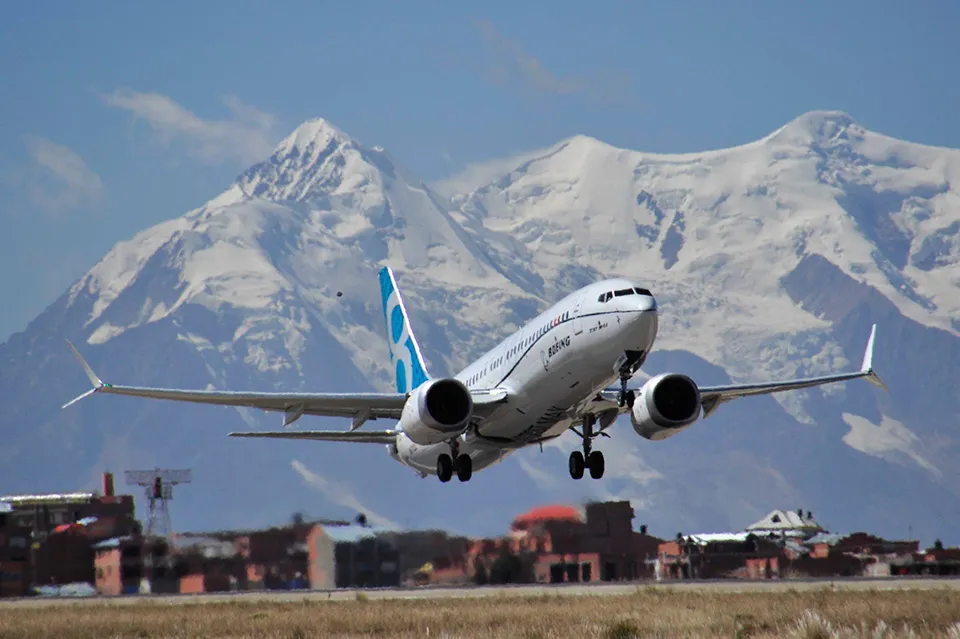
Boeing to brief over 200 pilots and experts on 737 MAX plans
Mar 24, 2019

Boeing is committed to enhancing the safety and performance of the 737 MAX through rigorous engineering, comprehensive training, and continuous collaboration with pilots and aviation experts. Our plans include implementing advanced software updates, refining pilot training programs, and engaging in ongoing dialogue with regulatory bodies to ensure compliance and transparency. We recognize the importance of restoring confidence in the 737 MAX and are dedicated to addressing any concerns through meticulous testing and validation processes. Our focus remains on delivering a reliable aircraft that meets the highest safety standards while supporting the operational needs of airlines worldwide.
The aviation industry is poised for significant advancements as Boeing prepares to brief over 200 pilots and experts regarding the future plans for the 737 MAX. This meeting is critical as it aims to address the operational improvements and safety enhancements associated with the 737 MAX series. The focus on enhancing pilot training and operational efficiency underscores Boeing's commitment to restoring confidence in its aircraft after a challenging period.
Understanding the 737 MAX Briefing
During the briefing, Boeing will present a comprehensive overview of the "737 MAX" program, highlighting the various upgrades and modifications made to improve safety and performance. This initiative is part of Boeing's broader strategy to engage with the aviation community and ensure that pilots and safety experts are well-informed about the aircraft's capabilities.
Key Topics of Discussion
The agenda for the briefing will include several key areas of focus:
- Safety Enhancements - Boeing will outline the latest safety features integrated into the "737 MAX", showcasing how these improvements have been implemented to enhance passenger safety.
- Pilot Training Programs - An essential part of the briefing will cover the revised training protocols aimed at providing pilots with the tools they need to operate the "737 MAX" efficiently and safely.
- Operational Efficiency - Boeing will discuss how the "737 MAX" can contribute to greater operational efficiency for airlines, including fuel savings and reduced maintenance costs.
Engaging with Pilots and Experts
Boeing's decision to involve over 200 pilots and industry experts signals a proactive approach to gathering feedback and insights from those who operate the aircraft daily. Engaging with pilots is crucial for understanding their experiences and concerns, allowing Boeing to tailor its improvements effectively.
Enhanced Training for Pilots
One of the significant aspects of the upcoming briefing will be the emphasis on enhanced training for pilots flying the "737 MAX". Boeing aims to ensure that pilots are well-equipped to handle the aircraft's systems, particularly in emergency scenarios. The training programs will incorporate advanced simulation techniques and hands-on experience to build confidence among pilots.
Improving Operational Efficiency
In addition to safety and training, operational efficiency remains a top priority for Boeing. The "737 MAX" is designed to deliver better fuel efficiency compared to its predecessors, which translates to cost savings for airlines. By reducing fuel consumption and optimizing maintenance schedules, airlines can improve their bottom line while providing reliable service to passengers.
Feedback Mechanism
Another critical component of the briefing is establishing a feedback mechanism that allows pilots and experts to share their thoughts and suggestions directly with Boeing. This open line of communication is essential for fostering trust and collaboration between the company and the aviation community.
Charting the Future of the 737 MAX
Boeing's plans for the "737 MAX" extend beyond immediate safety and training improvements. The company aims to chart a sustainable future for the aircraft, focusing on environmental considerations and advancements in technology. The integration of sustainable aviation fuels (SAF) and improvements in aircraft design are part of Boeing's long-term vision.
| Key Areas of Improvement | Expected Outcomes |
|---|---|
| Safety Enhancements | Increased passenger confidence and reduced incident rates |
| Pilot Training Programs | Better-prepared pilots and improved operational performance |
| Operational Efficiency | Cost savings for airlines and reduced environmental impact |
Commitment to Continuous Improvement
Boeing's ongoing commitment to continuous improvement is highlighted by this briefing initiative. By actively seeking input from pilots and experts, the company demonstrates its dedication to creating a safer and more reliable flying experience. This collaborative effort is vital for addressing any lingering concerns and reinforcing the "737 MAX" as a dependable choice for airlines worldwide.
Conclusion
As Boeing prepares to brief over 200 pilots and experts on the future of the "737 MAX", the aviation industry watches closely. This initiative reflects Boeing's commitment to transparency, safety, and operational excellence. By engaging directly with pilots and implementing their feedback, Boeing aims to restore faith in the "737 MAX" and ensure that it remains a cornerstone of modern aviation.
Related Articles

Explore Thailand: The Best Islands to Visit for Paradise, Adventure, and Relaxation

The Ultimate Guide to the Best Islands in Thailand for Your Next Getaway

Do babies need passports? How to get a passport for a newborn

How to get a U.S. passport fast: here’s how to expedite the process

What is Mobile Passport Control: 5 reasons why you should use it

SENTRI vs. Global Entry: A detailed guide

Do you need a passport to go to the Bahamas? Let’s find out

Do you need a passport to go to Mexico? A detailed guide

Do you need a passport to go to Canada? We got the answer

Do You Need a Passport for a Cruise: An Essential Travel Guide

Booster Seat Requirements: All the Rules to Follow in Your Rental Car

What Are the World’s Most Powerful Passports, and How Does Yours Rank?

How to Take a Passport Photo at Home: A Helpful Guide

You've got to have heart! Southwest's new livery

Your opinion: Should water be free on low cost carriers?

Young women bolder than guys as solo travellers
